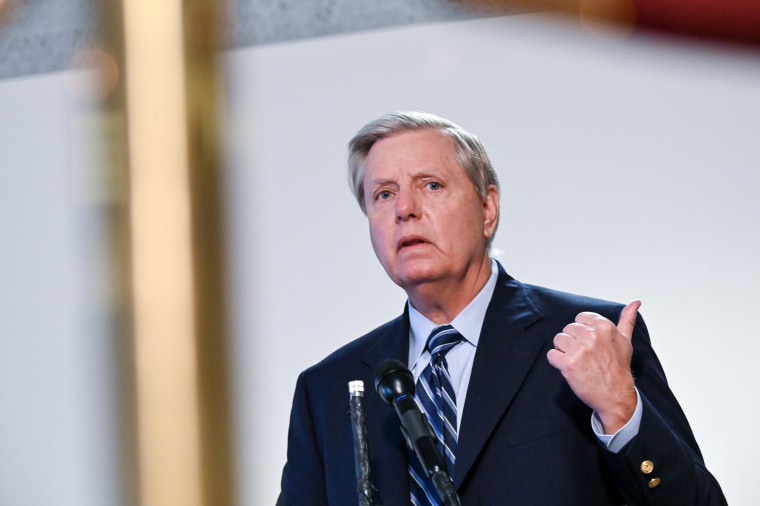One day after Donald Trump refused to commit to a peaceful transfer of power in the event of an election defeat, several congressional Republicans carefully defended American principles, while failing to criticize their party's president by name.
But Senate Judiciary Committee Chairman Lindsey Graham (R-S.C.) pushed a line that was a little different.
"People wonder about the peaceful transfer of power. I can assure you, it will be peaceful.... I promise you as a Republican, if the Supreme Court decides that Joe Biden wins, I will accept the result. The court will decide, and if Republicans lose, we'll accept the result."
Before we even consider the specific details, it's worth pausing to note how hilarious it is that Lindsey Graham expects people to take his "assurances" and "promises" seriously.
We are, after all, talking about a Senate Republican who twice delivered a solemn vow not to advance a Supreme Court nominee during an election, right up until Graham decided he didn't want to honor his word anymore. This betrayal didn't happen decades ago; it occurred this week.
If the South Carolinian believes the political world -- voters, lawmakers, journalists, et al. -- should believe his "assurances" and "promises," he may not appreciate the degree to which he's set his credibility on fire.
But even putting aside these relevant details, Graham's latest vow is terribly problematic in ways that may matter quite a bit. In his comments, delivered on Fox News, the chairman of the Senate Judiciary Committee didn't say he'd accept the will of the voters; he said he'd accept the will of the Supreme Court.
Except, as Graham probably ought to know, that's not how elections are supposed to be decided in the United States. Indeed, the idea of a high court -- with six Republican-appointed justices, three chosen by Trump himself -- overruling the will of the American electorate is terrifying.
Though Graham doesn't appear to have any such concerns. He appears to take it as a given that Donald Trump will fall short, challenge the results, and turn to the federal judiciary as part of a bid to stay in power, just as the president has repeatedly said he intends to do.
It would then fall to GOP-backed jurists to be the arbiter of whether the GOP ticket gets to remain in power.
There was some suggestion that Graham was distancing himself from Trump's rhetoric by emphasizing his commitment to a peaceful transition. But the details matter: the senator committed to honor a hypothetical ruling from conservative Supreme Court, not an election result.
They're not the same thing.
